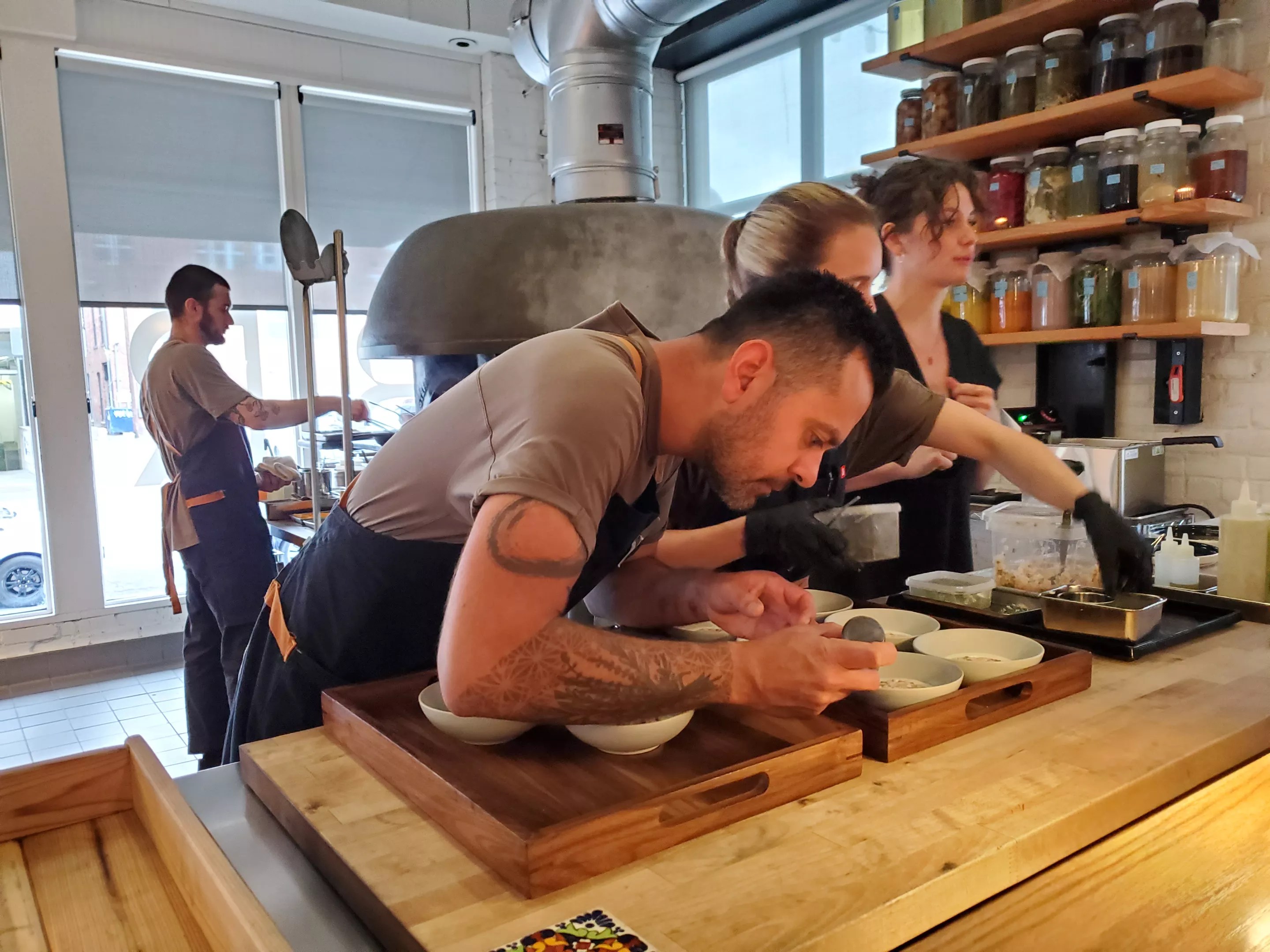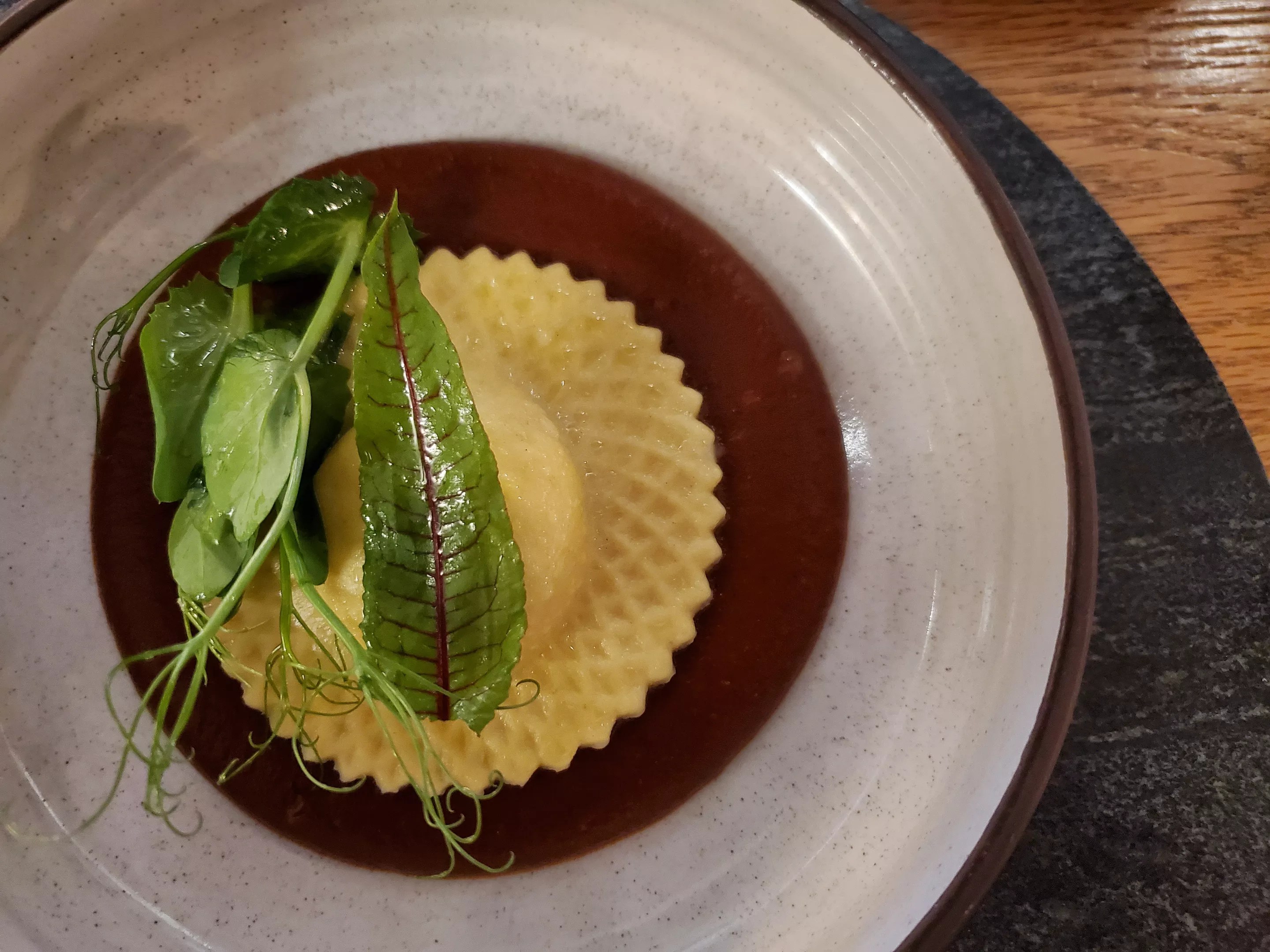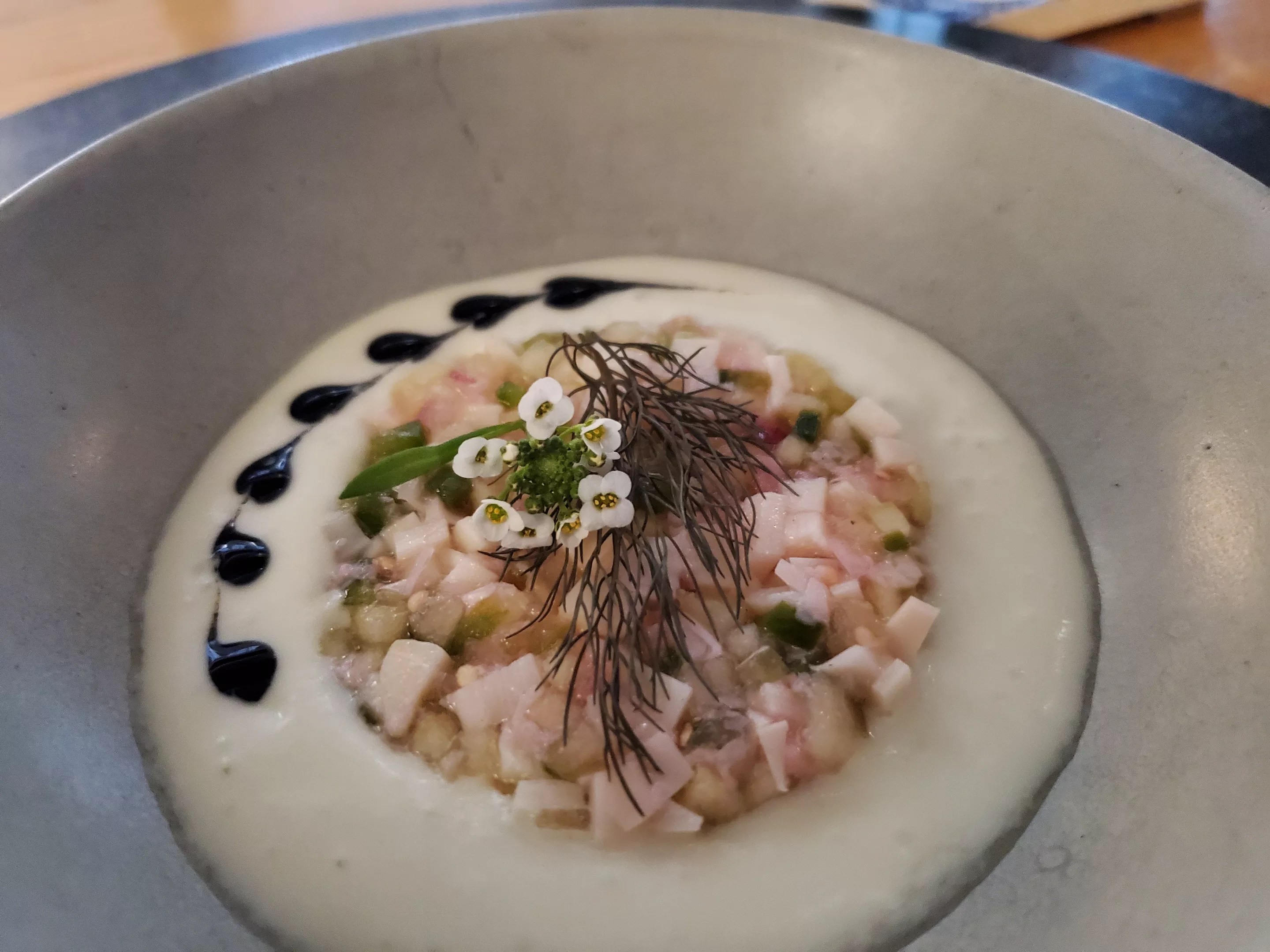
Molly Martin

Audio By Carbonatix
When the James Beard Awards announced its list of 2023 semifinalists in January, thirteen Colorado chefs and restaurants were represented. The group included a lot of first-time nominees, including Yuan Wonton food truck owner Penelope Wong; Misfit Snack Bar’s Bo Porytko, who also opened the impressive Molotov this year; and the Friar’s Fork in Alamosa – an honor that surprised even its owners.
But only one Coloradan made the cut when the finalists dropped in March: Bruto executive chef Michael Diaz de Leon. At the awards ceremony at the Lyric Opera in Chicago on June 5, Diaz de Leon lost out to Kris Komori of KIN in Boise, Idaho.

A raviolo filled with smoked mushrooms and queso fresco, served over chile Colorado at Bruto.
Molly Martin
Just being named a finalist was a longtime dream for Diaz de Leon, who was born in El Paso and whose experience includes a two-month stage at the world-renowned Pujol in Mexico City. He moved to Denver in 2019 and took at job at Old Major, just before the pandemic hit. When that restaurant didn’t reopen, he spent time making sandwiches at Justin Brunson’s sandwich counter inside Leevers Locavore – a far different kitchen than those of the fine-dining world he was used to.
Eventually, though, he connected with chef Kelly Whitaker, co-founder of Id Est Hospitality, the restaurant group behind the Wolf’s Tailor, Basta, the Dry Storage bakery and mill, and Bruto, which had debuted in September 2019.
Since taking it over, Diaz de Leon has had to hustle through a second indoor dining shutdown while trying to build his team and honing its tasting-menu approach, complete with an in-house fermentation program.
When Westword spoke to him in May, he was excited about the potential to win, but also focused on making the most out of the opportunities that come with being named a finalist, like getting to attend the James Beard boot camp in Albuquerque last month to learn more about sustainability and advocacy work.
“I do this for bigger reasons than awards,” he explained. “I didn’t before. I was always chasing the carrot, and now I have the carrot. So what are you gonna do with the carrot? I’m gonna ferment it and make miso out of it.”

Ceviche made of hearts of palm at Bruto.
Molly Martin
The lack of Colorado representation at the awards is a big shift, especially compared to last year, when local nominees swept the entire Best Chef: Mountain category, with Annette owner Caroline Glover taking the big prize. And we’re not the only state with a thriving food scene to be shut out this year – for the first time in the history of the awards, New York didn’t have any winners.
The awards themselves have had a fair share of drama this year. Writer Bret Thorn, a Colorado native, shared a breakdown of the controversy for Nation’s Restaurant News, which includes judges quitting and complaints about how the foundation’s new ethics code is being enforced.
Regardless, the Beard Awards remain influential, and the new policies have certainly shaken up the honorees, ushering in more diversity and giving attention to lesser-known names in smaller markets – which, generally, is a good thing.
While some might see the lack of Coloradans among the finalists this year as a negative reflection of the local dining scene, rest assured that culinary creativity in the metro area, and the state as a whole, is thriving. Diaz de Leon agrees that there is a lot of local culinary talent here. “My next personal step is to bring Michelin to Denver,” he said the day he was named a finalist. “It’s just a matter of time.”